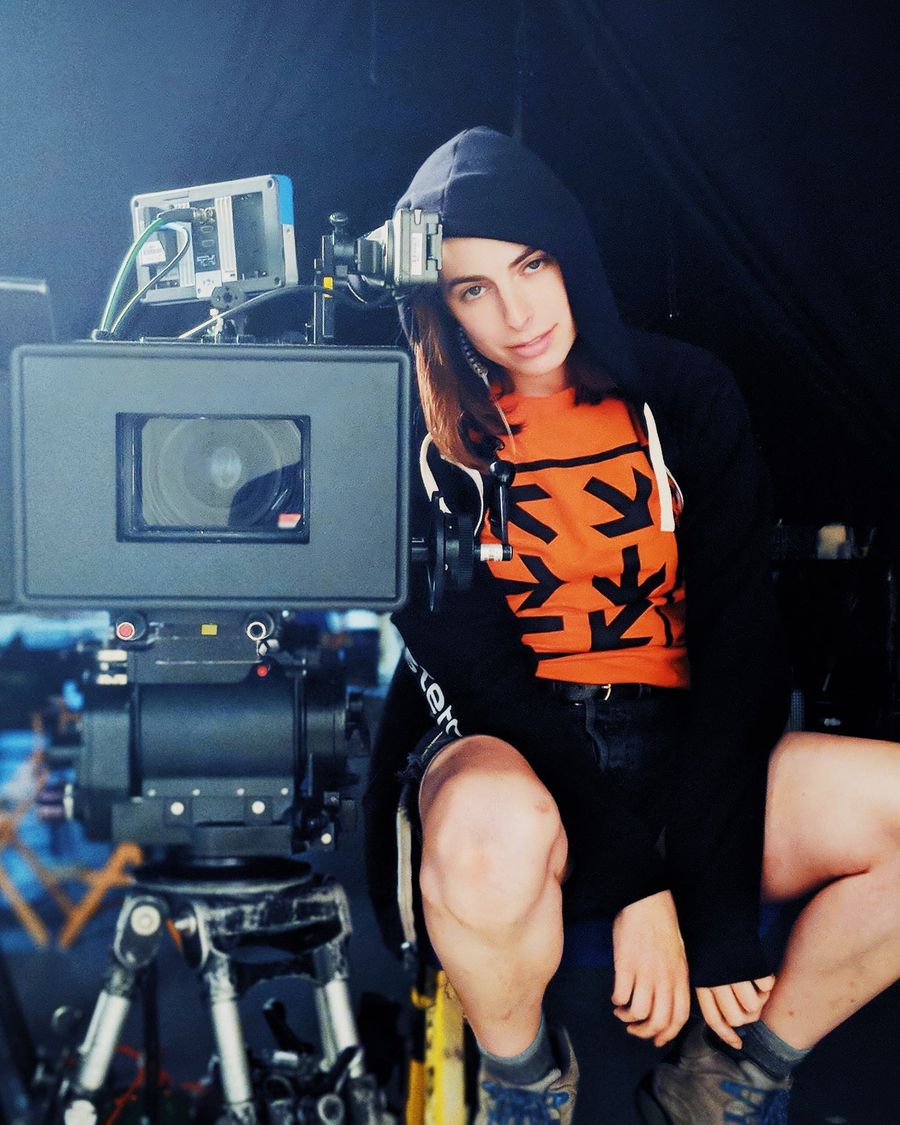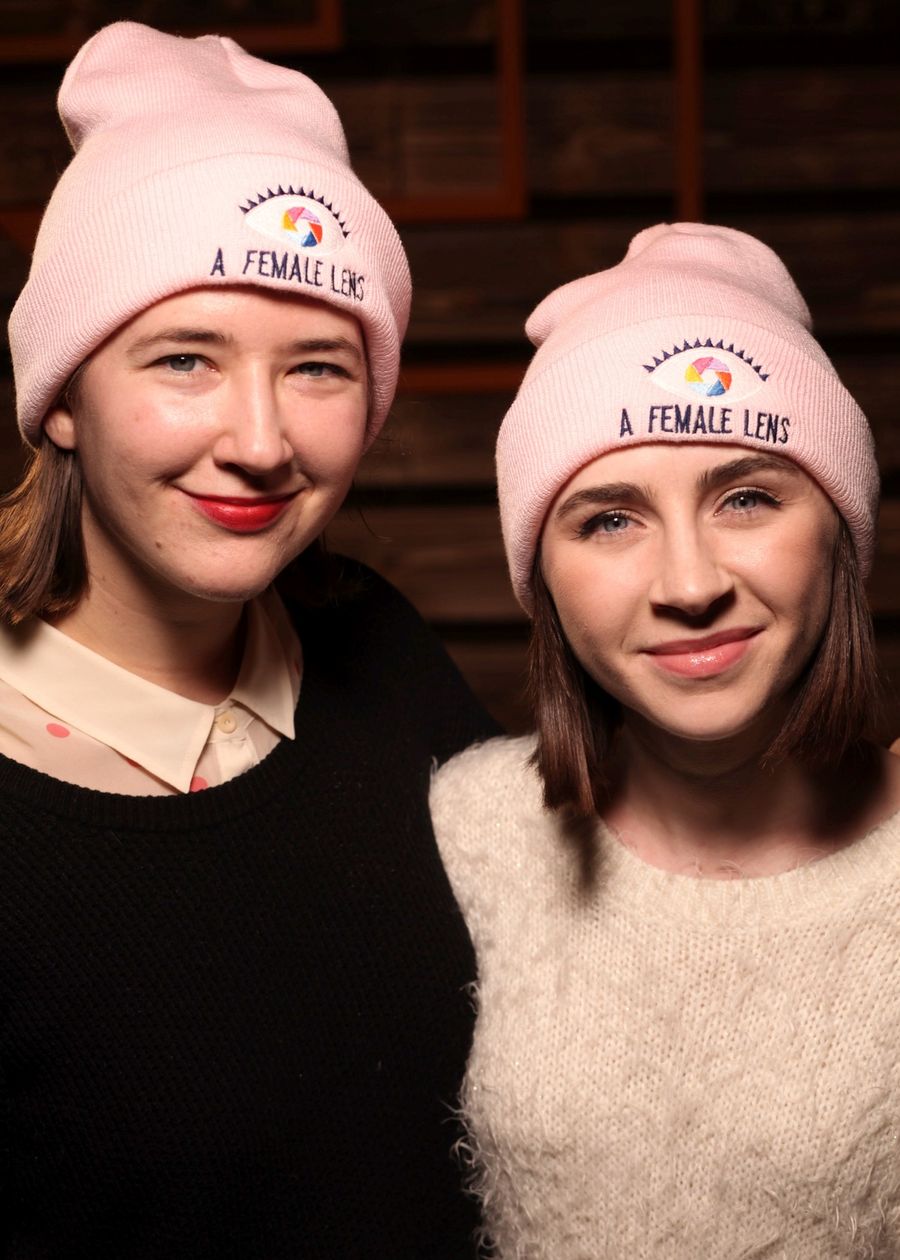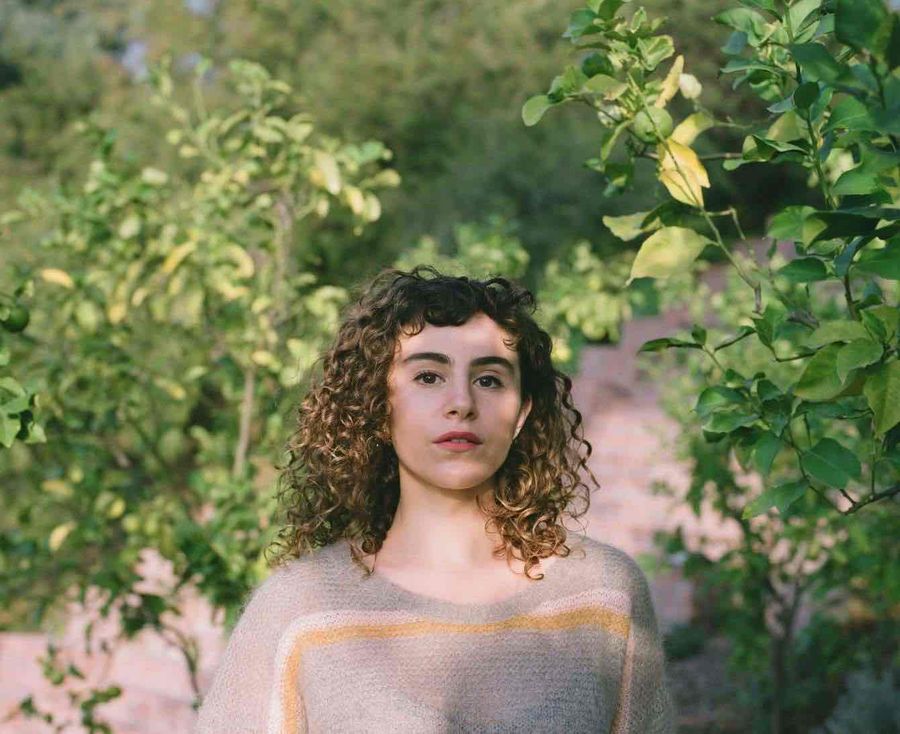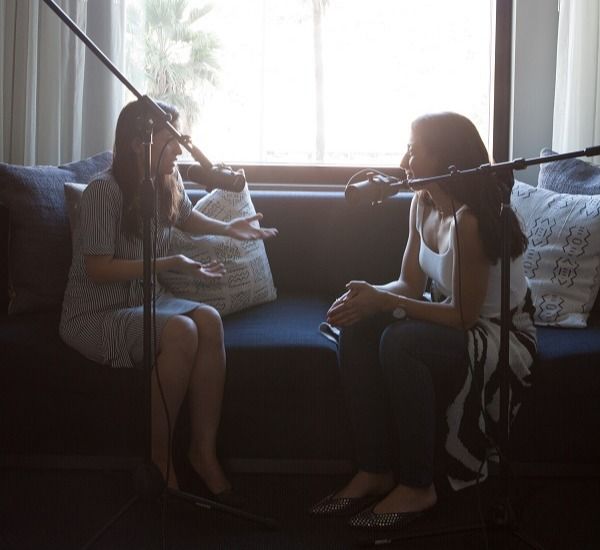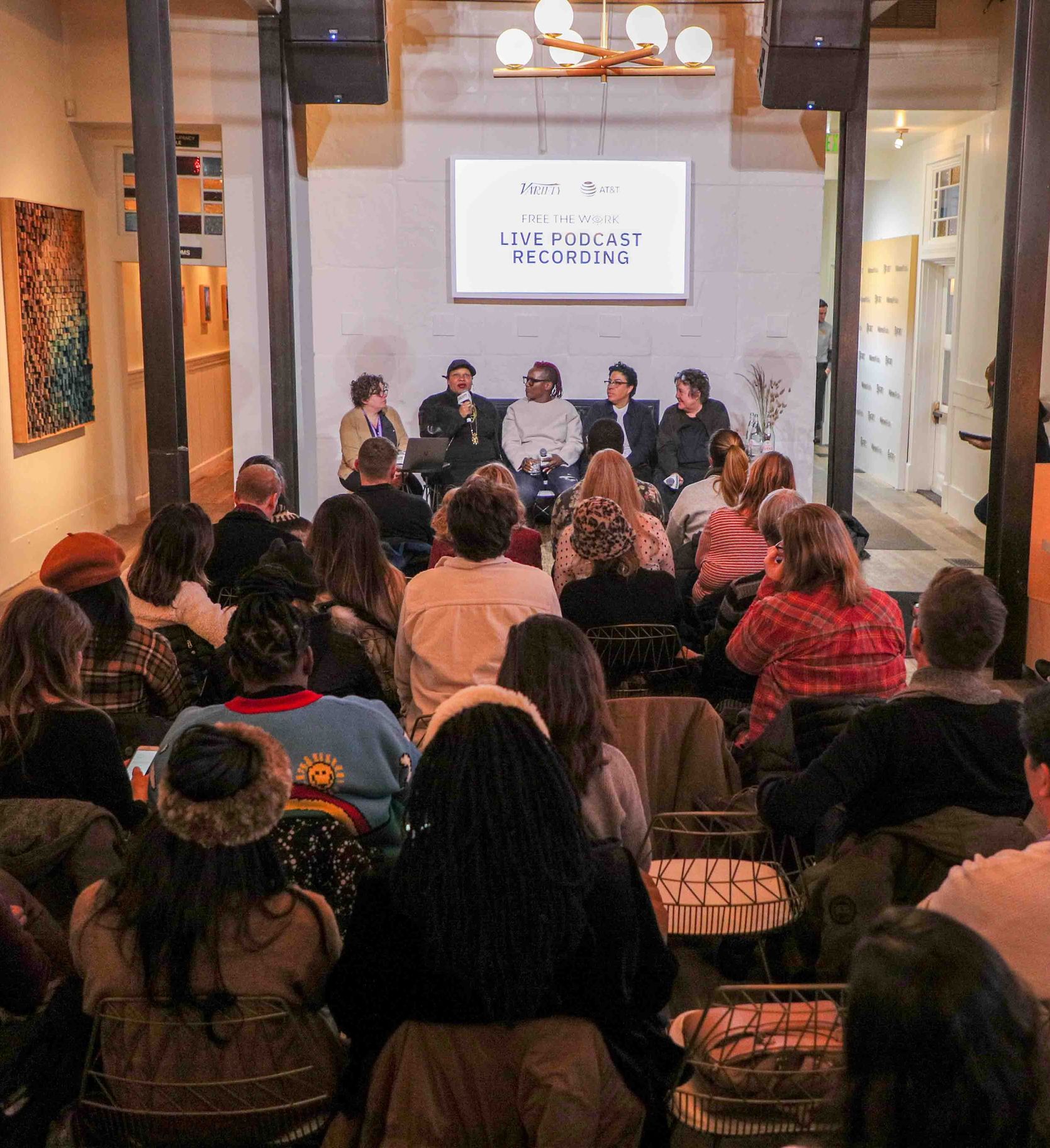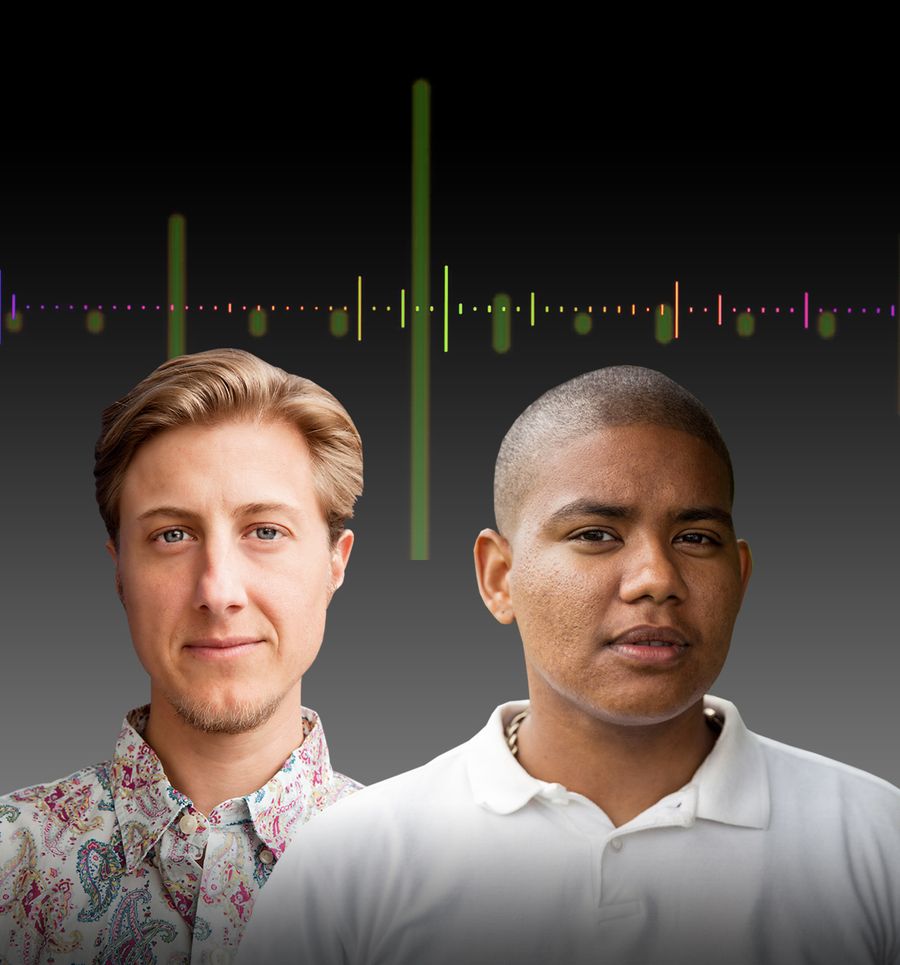In this episode of our FREE THE WORK podcast miniseries, "The Future, Through Our Eyes," watch as our FTW Community Lead, Chloe Coover, sits down with prolific DP Ava Benjamin Shorr to discuss her body of work, how to advocate for trans voices behind the scenes, and what she looks forward to doing in the future.
You can watch our close-captioned video or listen to this episode through Apple Podcasts, Spotify, Stitcher, and Soundcloud. Keep scrolling for the full transcript! In addition, be sure to watch Ava's most recent work, the Netflix documentary, Disclosure: Trans Lives On Screen.
Ava Benjamin Shorr
Ava Benjamin Shorr is a Director of Photography who also happens to be a transgender woman. She was raised by a Mormon mother and a Jewish father in Portland, Oregon. Her early passion for cinematography was stoked by skateboarding videos and art-house cinema. After graduating film school in Denver, she moved to Los Angeles and spent two years assisting famed stop-motion animator PES. Before moving full time into cinematography, she also spent several months as a Technical Assistant to the President of a virtual reality camera house. Technical prowess, photographic experimentation, and identity are all a fixture of her work. She has shot commercials, music videos, and documentaries for a variety of clients, including The Front, Amazon, Vice, Bloomberg, and The New York Times. She also has three features in post-production including the documentary Disclosure: Trans Lives On Screen, executive produced by Laverne Cox. Most recently she completed principal photography on the narrative feature Gossamer Folds produced by Yeardley Smith’s Paper Clip Ltd., starring Jackson Robert Scott, Shane West, and Alexandra Grey. Ava was included on a list of “Mind Blowing Women Cinematographers” by Emmy Rossum and is also an active member of the International Collective of Female Cinematographers.
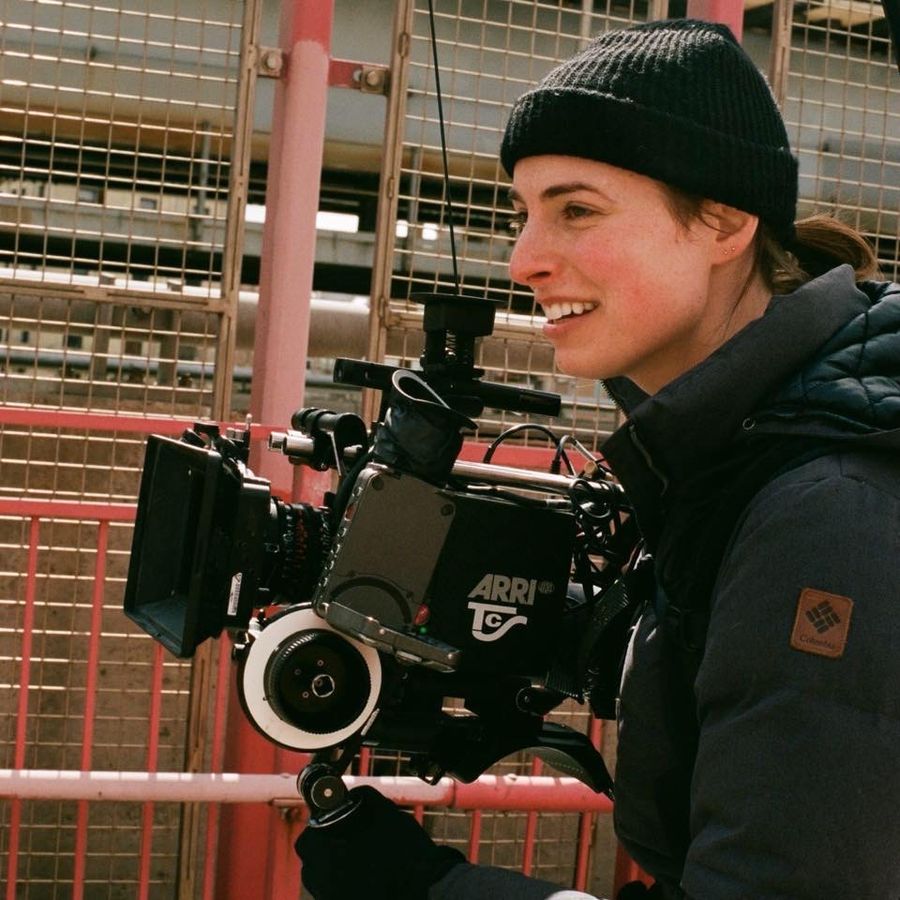
Chloe Coover
Chloe is FREE THE WORK's Community Lead. She's an artist, quadruple Leo (Sun, Moon, Rising + Mercury), ANTM scholar, meme enthusiast, and is proud to be a woman of trans experience.
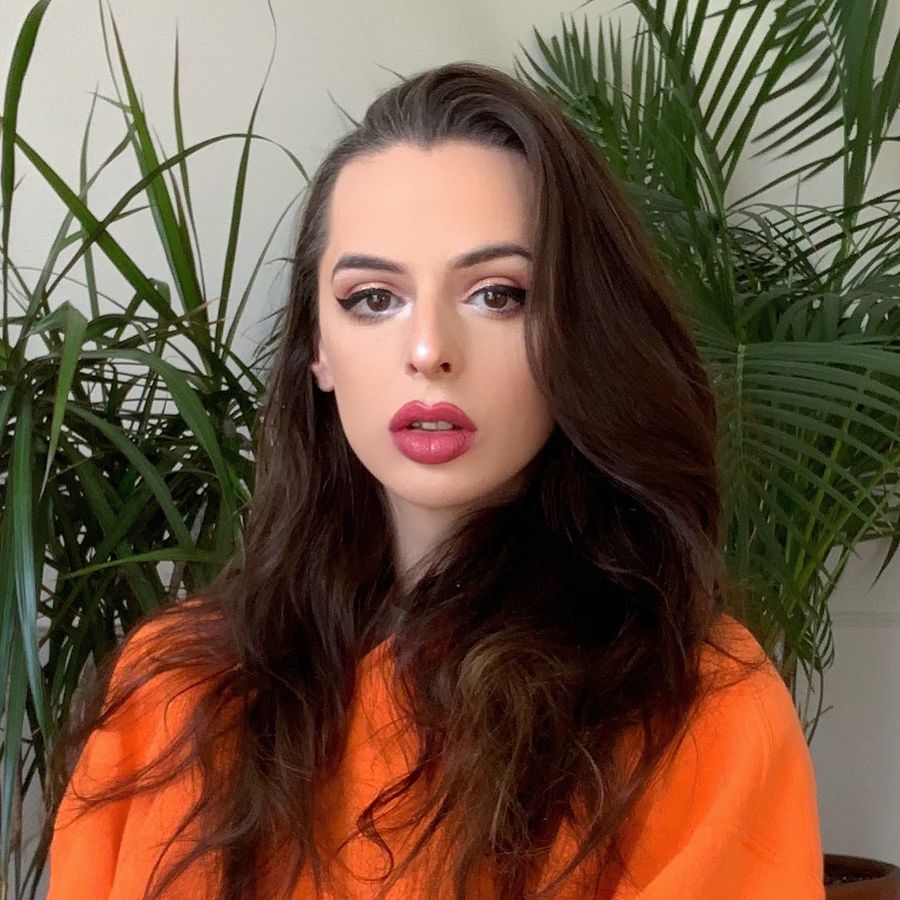
CHLOE COOVER: Hi, I'm Chloe Coover, FREE THE WORK's community lead. And today I'm joined by Ava Benjamin Shorr, a phenomenal director of photography and a wonderful friend. She has shot commercials, music videos, and documentaries, for clients including Nike, Vans and "The New York times" and shot three feature films, including the recent Netflix release, "Disclosure: Trans Lives on Screen." So just to kick things off, it's so good to see you. How are you, first of all?
AVA BENJAMIN SHORR: I'm okay.
CC: Dealing with everything, as you know, one could expect to be?
ABS: Yeah, I only start dealing with it once I drink my coffee, play my games of Magic: The gathering, in the morning.
CC: That's a great morning ritual, for sure.
ABS: It's pathetic.
CC: No, I mean, we all gotta have our thing. So we haven't seen each other in a really long time because obviously there's a global pandemic going on and we've all been sort of on lockdown. How has the quarantine been for you, and in a professional sense, in an emotional sense? What were you working on before? Have you worked on anything during quarantine? What's been your creative outlet, you know?
ABS: Well, I guess emotionally it's been a pretty hard, it's been a pretty hard time for me, very roller coastery. And definitely haven't been the most healthy, like mental-health-wise. Yeah, it's been hard. I mean, basically my whole like engine in my normal pre-COVID life was like, was basically working to make money, to get things that I wanted, like surgeries for myself. And it was like kind of this cycle of like, sort of, I guess, like, it was like a hopeful positivity, you know? 'Cause I was like working towards and moving towards things and I felt like there was a lot of like progress in my life, especially the past few years. And I dunno, it all just sort of came to a halt. And once that engine of like making money and working sort of turned off, a lot of my old insecurities about myself and my body kind of like were so present. It took quite a while to like sort of find a new balance in my life.
CC: Yeah, well I mean it's been a time of like reflection, in some very surprising ways for I think everyone definitely across the board.
ABS: Yeah.
CC:Do you feel like you're closer to more of a like an equilibrium now, or is it still sort of this ongoing process?
ABS: I would say it's still ongoing. I don't know, there's been like a lot of good things that have happened recently, you know? Like "Disclosure" came out and I feel like it's getting a lot of attention, and then that documentary came out on Bianca and I. And it's sort of funny, because like I'm getting a lot of people like reaching out to me here, a lot of like attention on social media. The irony of all that is that I've just been so depressed.
CC: Right.
ABS: And like it's nice to have people sending love and it feels good, but I'm just sort of like stewing in sort of my dark cloud of grossness, you know, all the time. So-
CC: Yeah, very familiar.
ABS: Yeah, so, you know, I don't know. You just keep trudging on though, keep weathering the storm. Like that's kind of been my way of just getting through the shit for the past like 10 years, you know?
CC: Yeah, totally. Well, I mean, I think that that's like an interesting sort of topic of exploration in a way, in sort of thinking about the fact that like our biggest professional successes, and the times in our life where we're supposed to be at our most successful, are often not the times where we feel most equipped mentally and emotionally to deal with them, or, you know, have the capacity for them. And I would imagine there's, you know, been sort of a roller coaster of that, even, you know, during times when you were busier too, in a different way. Like when you're working more, maybe some of the, you know, it's like the internal conversation gets like silenced a little bit.
ABS: Yeah, yeah. I mean, you know, I do say this stuff and I don't wanna give the impression that I'm like horribly incapacitated, you know?
CC: No, no, no.
ABS: Like, you know, like if we were to get like a bird's eye view of kind of like how I've been over the past 10 years, like my mental health now is like significantly better, you know, than it ever was before. I think that, you know, what sort of happens is like, especially, you know, when you're trans, like I find that all of these steps that you take are sort of minimizing the almost percentage of depression you have, where it's just, or like the amount that you like feel uncomfortable or the amount that you dislike your body. So maybe, you know, seven years ago at the start of transition, I would have been like, "I feel 90% gross about my body." Maybe now I'm like, "I feel 25% gross about it," you know? So it's just like I-
CC: Yeah.
ABS: I do generally feel a lot better. Like, I remember at the start of my transition, I was like, I mean, I had some days on set where I was at the end of the day, just like crying and like everything would just like trigger some sort of discomfort in my body and just felt horrible. And you know, like now I'm so much more stable and balanced and can like get through the hard stuff.
CC: Yeah.
ABS: I do think that it's just like, you know, like with everything in being trans, it's just like, it's just kind of another little pressure point on all the other things that are kind of happening, you know?
CC: Totally, totally.
ABS: Yeah.
CC: It's like you have to accommodate everything else that's going on in the world, but plus this added additional sort of layer that may come into play in relation to anything that's going on.
ABS: Yeah.
CC: There's definitely always kind of, it's always on the horizon potentially, waiting to like, you know, join the party. I mean, it's interesting to think about, so you were, when you were in an earlier stage of transitioning, you were still working on sets, correct?
ABS: Yeah.
CC: And so you've been kind of like, you've been in that world the whole time that you've been on your journey, a gender journey separately. So, I am kind of curious to ask what that process has been like, but I'm also, you know, I don't wanna necessarily fixate too much on just like the act of transition.
ABS: Yeah, yeah.
CC: But I'm just curious, you know, person to person.
ABS: Yeah, yeah. I mean, I'm pretty open about stuff. There's not too many things that I don't mind talking about.
CC: That's good.
ABS: Yeah, yeah. So, I dunno, I think that, you know, my original thing that I was doing, like from about the age of like 20 to like 24, 'cause I was like more so directing, like towards in college and towards the end of college, I started shooting a little bit. But it was mainly just friends asking me to DP their stuff because they liked how my things looked, you know? And I would like to do it and direct my own like short films or whatever. So-
CC: So you started doing, like both, just like DPing and directing your own stuff?
ABS: Yeah, I mean, a lot of times, you know,
CC: That's like-
ABS: I didn't go to like USC or Chapman. I went to like kind of a city commuter school that had a pretty garbage film program. So, you know, you just kind of did everything.
CC: Right.
ABS: So yeah, that sort of like, starting to shoot for my friends opened this path up to something a little bit different. But, like I met some really great people in like some great directors, that I started collaborating with. One of whom was still to this day, one of my best friends, Chris. And they asked me to direct this music video with them senior year of college. And that music video did pretty well online. And then we became this like directing duo for a couple of years. And it was great, but I just realized after a few videos, as they got bigger and bigger, that I felt very uncomfortable in the director's chair.
CC: And why was that specifically?
ABS: Well, it felt like Chris always had a really good grasp and an answer for the questions that creative crew members had, you know? And I was always really kind of like all about the imagery. And so I felt most comfortable kind of coming up with imagery, or like hanging around the like DPs that we would hire, the camera crew. Like when it came to directing actors, I was uncomfortable. Like when it came to like deciding on major conceptual set pieces, I had opinions, but maybe I wasn't the most comfortable at it. It just felt like it wasn't a natural fit for me. So I,
CC: Right.
ABS: When I was 24, I basically just like quit cold turkey on all film stuff. I was very unhappy and I became an assistant to a director that I'd actually met at an internship a few years prior to that. And I became his assistant for like two years. And during that time I started transitioning, and I was cutting out all the bullshit in my life. And I was just like, you know what? "I don't wanna direct, I really like shooting, you know? "It just feels like a good fit for my temperament."
CC: Yeah.
ABS: And I really haven't looked back since. Kind of the, I think, you know, sort of the interesting thing about my career as a DP or like my trajectory, is that it's a pretty like untraditional, you know?
CC: Yeah, that sounds not very like the usual pathway, for sure.
ABS: Yeah, and I dunno, I didn't really go to a school that had great connections or that even taught any of the fundamentals of cinematography, you know? A lot of it was like self-taught, making mistakes on set in the early days, you know? And I mean, I think I just kind of said yes to everything. Like if someone wanted me to like swing, G&E swing, I would say yes, even if it was for free, you know? Like, and I'd be shooting little things on the side. And I think I shot a lot of things that looked horrible, you know?
CC: Yeah, as one does when you're learning.
ABS: I just gave a whole lot of critiques of my own work, even like things that are on my website. But yeah, I think, I just, I don't know. It was, yeah.
CC: I like that you had-
ABS: A lot of fucking it up.
CC: Yeah. I like that you consistently, in the time that I've known you, always have that kind of like just yes, to project after project kind of attitude, which I think is really a definite like way of honing craft and building, and, you know, moving forward. It's really, I've always been very inspired by that way that you approach your career.
ABS: Yeah, well, you know, if you think about it, I mean, I'm a pretty like thorough person, you know? And I definitely did my research and stuff. So it's like, if you go on a lot of people's IMDB, like a cinematographer or an actor, or if you listen to podcasts with like cinematographers, you'll hear fairly consistently, or see on IMDB fairly consistently, like people working on a lot of small, weird projects, before they get known for anything.
CC: Right.
ABS: And even though I might have really high expectations for myself all the time, and I want to make beautiful films with a capital F you know?
CC: Yeah.
ABS: Like, I mean, that's like my dream, but I'm also like, I like trash too. So, you know, I'm kind of like all over the place.
CC: Totally.
ABS: But I think that, like, you just have to like be on a ton of different sets and try a bunch of different things out and kind of like that will help lead you to where you need to be eventually, you know?
CC: Yeah, and I mean, I think that in that what you were saying too, about like, if you're listening to other cinematographers talk, it's like, this is a very common theme. I was curious to know too, specifically, if there are, you know, any mentors or models that you've looked to as you've been on your career path, or people that sort of like have helped you sort of align your own trajectory?
ABS: Mm hmm, well there's certainly like cinematographers that I look up to just because I think their work is great, you know? I would say sort of like the epicenter of a lot of like my thoughts and philosophy and aesthetics come from like really looking up to Bradford Young, and, you know, he shot that series "When They See Us," he shot "Arrival," he shot "Selma," "Ain't Them Bodies Saints," "Pariah." He's just a force to be reckoned with. He's just, I mean, his work is beautiful, but also I think he was one of the first people that I, when I read about their work, there was like a deeper philosophy there. I think people like, you know, Deakins or Robert Elswit are fantastic technicians and artists in their own right.
CC: Okay.
ABS: But when I'd listen to them talk about their work, I don't feel that same deeper, maybe emotional, social pull that Bradford Young has when he talks about his work, you know?
CC: Yeah.
ABS: Like he is very much steeped in the community that he comes from, you know? He's a Black man. Like that informs his work. And I think that as more, a more diverse array of cinematographers, like enter the fold of like professionals in this industry, like I think that is something that I find really fascinating, is these, like people coming from these different groups that are seen differently, and that see the world differently, like how that affects their work. And, you know, I love hearing him talk about that stuff. It makes me feel inspired. It gives me deeper pause when I think about how people in the trans community are photographed.
CC: Yeah, I mean, that's a really fascinating thing to get into, honestly, is that like your role within a film set has so much sort of agency comparatively, over literally how people are seen. And do you feel that, I mean, I feel that in your work, you've had, I perceive a greater sense of deliberateness and intentionality about that kind of, you know, way that people are perceived on screen. Is that part of what you like philosophically bring to your work? As much as it's possible, you know?
ABS: Yeah, you know, I think for me, like intuition is the most important thing. I try not to get too like cerebral about the creative decisions I make, but I also think it's very important to be aware of those things and to be able to articulate why you're feeling a certain way and to be open to criticism and critique. And I think that's very open to being a good collaborator. Maybe ask me the question again.
CC: No, I was just kind of curious, because one thing I've been really wondering, there's so few in the history of film, there's so few out, trans, directors of photography. And one thing that, as someone who's, you know, of trans experience and has been photographed and on video before, I definitely have felt that I've been perceived in ways that didn't feel comfortable to me.
ABS: Yeah, yeah, yeah.
CC: And I really like thinking about the world that could be created by those who, you know, use the lens through a trans gaze.
ABS: Sure, sure. You know, I think what's really, I think a really exciting thing to me about being trans, and I think this is the thing that conservatives hate the most, is that trans people in a lot of ways are deconstructing the binary, you know? And I think that in the way that we're like socialized, and the way that we are kind of like steeped in our own culture, it's very gendered. And I think that a lot of times, whether you like it or not, that is affecting the decisions you make, even if they're intuitive as an artist. The way you frame people, the way you light people, you know? And these are super outdated things, but it's like, you know, you use a softening filter when you photograph a woman, you know, because she needs to look like flawless and pretty or…
CC: Yeah, no, totally.
ABS: Yeah and it's like, you know, there's all of these sort of choices that you or a director or producers might want to make. And I think that, I don't know, I think it's helpful to be trans, to be aware that there's more than that, you know? And that you're not, I feel like I'm very aware of sex and gender, especially in other people, and in the spectrum that exists. And trying to see people for, I want to see people for who they actually are, you know?
CC: Right.
ABS: So I try and be careful not to project onto people.
CC: Right.
ABS: And I see it, I see it, I saw it sometimes when I was an assistant camera person or working on set, I would see the directors and DPs making decisions that I thought were, maybe not wrong, wrong is not a good word, but I felt like it-
CC: They were posing?
ABS: They were projecting their own desires and fascinations with like Women of Color onto these people, you know? And it kind of upset me. I wouldn't say anything, but I just, I did, I was like, "This doesn't feel good to me," you know?
CC: Yeah, and I mean, I think that what you were saying about just the awareness that being trans imbues one with, is so powerful and potent, and like something that I've experienced in my own life, in that if being trans has taught me anything, it's to have an open mind and not make us, and to, you know, like train myself to be as free of assumptions of others as I possibly can be. And to know that like I have been trained by society to make those kinds of assumptions. And so to do that and to begin the unlearning process.
ABS: Yeah.
CC: And so it makes me more comfortable to know that there are people who are shaping, you know, the behind-the-camera part of media that we see, that do have that kind of perspective, and aren't just relying on, you know, socially ingrained like behaviors.
ABS: Yeah, yeah. I think that's one of the reasons why I'm more attracted to narrative in general.
CC: More so than documentary?
ABS: Well, you know, documentary is not something I do a lot of anymore.
CC: Yeah.
ABS: Which is, you know, kind of the funny thing about this conversation right now, is that it's very much, the context is that of these two documentaries, you know?
CC: Yeah, totally.
ABS: Documentary was a way for me to get my foot in the door. And I started shooting "Disclosure," like over, maybe it's like two and a half years ago at this point, you know? And it's, you know, I've kind of moved away from documentary. I think that I would still shoot them were it the right project. But you know, most of the past, besides like "Disclosure," a lot of the stuff that I've done is like commercial or narrative. I think you can't help it if you're a cinematographer now, to do stuff that's documentary adjacent, you know? It's like because our aesthetic tastes are so shifted towards like hyper naturalism, that if you're doing a branded spot or if you're doing a commercial, a lot of times it's like there are elements of documentary at play. So I certainly still use a lot of the same skill set, but I actually never really liked documentary filmmaking on the whole, because I'm a lot more interested in the intentionality of imagery, and making choices and making creative decisions that are, I don't know, interesting to me.
CC: But don't you think that also, I mean, I totally, I totally get what you're saying on the one hand, but on the other hand, I'm like, but also, you know, documentary is an inherently still mediated form of storytelling. You're still, you know, picking and choosing what you do tell and what the audience gets to see and what they don't, how they get to see it. I mean, as a cinematographer, like you're the one who's like sort of framing. You know, if you're shooting a crowd scene for a documentary and you're choosing to focus on one specific segment of the crowd, versus, you know, this other thing that's going on over here, it shapes the way that the audience experiences that story. So there's still some mediation in that. But I do get what you're saying in terms of-
ABS: Yeah.
CC: Intentionality.
ABS: I mean there's totally yeah, yeah, not to discount them completely, but you know, if you're doing a narrative, a commercial, the tools that you have to create an image are tenfold, versus what you would probably have on a documentary.
CC: Right.
ABS: And additionally, I would say the amount of times in documentaries, that you're just asked to shoot a ton of footage, you know?
CC: Right, 'cause they're like, "We'll just edit it all together later."
ABS: Like, yeah, that doesn't feel good for me. Like, if I'm gonna like strap a camera on my back for 12 hours straight and put my body on the line, like, I want that shit to be used. You know what I mean?
CC: Totally.
ABS: This is like a limited resource, you know?
CC: Very real. I mean, I would definitely, as someone who's not a cinematographer, I would probably feel very frustrated by that too. I mean, I think that we, I talked with, so in the first episode of this series, I was talking to River Gallo, who's the director of "Ponyboi." And we were talking about the sort of idea of fantasy and sort of like narrative film, allowing you to access like a dream space and to make, get you away from, if you're trying to sort of open people's minds and show people something that they're not maybe familiar with, it allows you to do so in a way that's not so didactic and like a PSA.
ABS: Yeah.
CC: So there is that kind of like narrative film. You have magic, you know, you have like movie magic that you can tap into.
ABS: Yeah, yeah, yeah. I mean, I agree with them, I always agree with the director.
CC: Yeah.
ABS: I'm joking.
CC: Everything they say is totally 100% right, all the time. No, but I mean, it just, I think it is a really fascinating thing to think about, in terms of like, when we talk about how we build, you know, we story tell, we're doing storytelling for the next generation of like representation of all kinds of communities, that kind of dream-like fantasy brain exploration that you get to do from, you know, fiction or narrative film is really important as an emotive tool, like beyond just showing us the facts. Although to pivot back, I think that "Disclosure," I think does a really good job as a documentary of, you know, framing what it's trying to get across through human terms. So, I mean, it's not to say that that's not possible with documentary.
ABS: Yeah, yeah. I mean, I'm like immensely proud of "Disclosure." I, when we were shooting it, I had a sense, like, you know, my jaw would just be like open while we were shooting interviews. 'Cause like some people were just bringing up things that I could never even articulate, but maybe felt like subliminally in my own body, you know?
CC: Totally.
ABS: But how people articulate it in front of me and like open up these new, like pathways of thinking. It was just a pretty wild experience. Like, and I just, I'm so like proud of Sam for putting all of it together. It's such like a beefy document. It's like an important thing, you know?
CC: Yeah, it's an archive.
ABS: Yeah, it's and you know, I'm glad that I had a small role in it, you know?
CC: Yeah, I mean it's pretty remarkable as a sort of, for me, I find it really remarkable as like a marker in time of kind of like, and the great thing too, that I like about it, is that now with so much that's in it, has been historically so harmful for trans people. But now, because we've like stamped it by making this, you know, documentary, and putting it out publicly and saying, "Okay, here is this history. "It's all right here, it's extremely accessible, "it's on Netflix. "Now we should all move past this "and we all know better," you know? Like there's no excuse anymore for people to not know better.
ABS: Yeah.
CC: Obviously people will not still, but.
ABS: Yeah, I think something that kind of happened recently that I thought was nice, I was on set with this director, I think last week, and he had seen parts of it, and the way he was just sort of, we were talking about it, I could see like something that opened up in his head, like he was starting to think about things differently. Like, maybe he was already on board with, you know, he was an ally, you know, prior to that, but I think that like, furthermore, he was starting to, I just got the sense that he was starting to piece together, the ways that he too was like socialized.
CC: Right, right.
ABS: In that, as like a society on the whole, we are very influenced by what images we put out into the world.
CC: For sure.
ABS: Especially Hollywood images.
CC: Totally.
ABS: Which are some of the most seen, you know?
CC: I think it's really easy to get into living in this sort of fantasy world where you're not affected by the culture around you. And you are somehow this, you know, person with more agency than the average person.
ABS: Yeah.
CC: Where it's like, that's not true at all. We're all, we all exist within a culture that asks us to react against all kinds of pieces of media that are thrown at us. And even reacting negatively is still a reaction, that, you know, relates to the object in question. So you're, so it's always, you know, we're all part of the system essentially.
ABS: Yeah, and I think that, you know, even if, there's really nothing to lose in engaging, like, if you're the most like heteronormative person and you want to engage in this subject more, there's nothing to lose except like your own liberation, you know, from, I can say that personally, prior to transition, you know, there were all of these like bricks and pillars of masculinity, that were like holding me up, you know? Or pushing me down or crushing me. And I think it fucking blows that, you know, men live in this tiny little box of masculinity, you know?
CC: Very circumscribed.
ABS: And, you know, I don't know, deep down if there's anyone in this world that wouldn't want the ability to express themselves more.
CC: Yeah.
ABS: To not feel wearing a pink shirt makes you gay or something. You know what I mean?
CC: Totally.
ABS: But it's like that bullshit,
CC: No, totally. That you grow up with like in high school or middle school. You're like, "Will this make me?" It's like, it's just such bullshit, you know? Like I think-
ABS: Yeah, well the thing is, everyone has a stake in trans liberation, but also not just trans liberation, liberation of all people who are currently marginalized.
CC: Yeah.
ABS: In one way or another. Because there are repercussions, even if you may not be a person who exists within that group in question, there will be tangible repercussions on your life for them to get free, you know? And I mean, I've been feeling that intensely over the last, you know, couple years of examining my own privilege in relation to other communities, as you know, the part of the work that we do, trying to uplift, you know, a cacophony of voices rather than any one particular. And it's been really humbling and eye opening, to sort of say like, actually, you know, all of these things we are taught to feel may not be right. All of these things that we are taught, our rules about the world, have their roots in, you know, reinforcing oppressive structures. So it's, the unlearning is forever. But I mean, I would also agree that like, for me, same similarly, like it was kicked off by having the agency to transition. And transitioning about, sort of like, taking hold of agency over oneself.
CC: Yeah, yeah, yeah. It's a really powerful thing to feel and you never want to be without it once you have it.
ABS: Totally. And you also, I mean, I at least feel so much stronger that everyone deserves it, you know? If I get access to that, everyone deserves it.
CC: Yeah.
ABS: So-
CC: Everyone start taking hormones!
ABS: I mean, I'm not saying, I'm not gonna say that, but at the same time. So to sort of wrap that up, there's so many threads, there's so many ways that we could wrap this up. I wanted to talk more about "Disclosure" and the intentional hiring on set. I wanted to talk more about, you know, you as the subject of Rachel Fleit?
CC: I think it's Fleit, I think. Fleit, okay, Rachel Fleit's documentary, "Bianca and Ava," "Ava and Bianca"? Oh my God, what's wrong with me? And so many other directions I wanted to touch on. But to close, I feel like I'd be most interested to hear what your thoughts are, for sort of the future of like, where do we go from here, and where would you want us to go as like in film? And where do you want to go in terms of your own career, you know?
ABS: Well, yeah. I don't know if I'm the best one to speak about where the industry on the whole will go from here or should go. I will say that there were certain things happening pre-COVID, that there were certain trends that I did like. I felt like there was more conversation around diversity and inclusion, and I thought it was changing things for the better, you know? Like institutions were implementing things, take, for example, the American Society of Cinematographers you know, had a, and still has this mentorship for like underrepresented voices in cinematography. So, you know, that's something that I applied to. I got that mentorship. That mentorship like kind of changed the trajectory of my career. And that didn't exist like two years ago, you know? That's brand new. And I think that those things that the industry is doing are very effective in getting more people involved and sort of shepherding in a new generation of voices that might be more diverse than the previous one. You could argue that they should do more, but a lot of times as a DP, I kind of am working a lot and, you know?
CC: Right.
ABS: Not philosophizing on the industry.
CC: Right, I mean, I was mostly curious from sort of like what your specific experience is. And I know that one of the things I wanted to talk about was the intentional hiring that was done on a set of "Disclosure." Which, as you were saying, was now like two years ago, but maybe that's something, I would love to hear you speak to sort of how that set was run more, and maybe some lessons that could be taken away for other steps in the future.
ABS: Sure, sure. Yeah, you know, I think being one of the only few, like kind of like trans DPs that's I think working at this level, you know, the other's like Bianca Cline, who's like he's like good friend, and I would consider like a mentor too. But you know, you kind of get hit up for a lot of like trans-centric jobs, right? A lot of them aren't, not all of them are done right. So for "Disclosure," what was incredible about that experience, was that Sam Feder, the director, spent a lot of time and energy getting a crew together that was reflective of the subject matter, you know? So he prioritized hiring trans people and People of Color and not just like hiring them, but doing our due diligence to make sure that we were looking for people like that, that existed, you know? like not just being like, "Hey, do you know, like a gaffer?" You know? And whenever that happens, you just get, you know, insert dude, you know, like?
CC: Right.
ABS: So we spent a lot of time asking around, putting, like going on Facebook or Instagram, asking for recommendations and interviewing people. And like looking for ways to include the community that the film was about, you know? And giving back in a financial way and experiential way. And, you know, in the instances, you know, and I think this is a disappointing thing about the industry, and I think it's just what the state is right now, is that there are not a lot of like People of Color or women doing grip and electric. There are some, you know, but there's not a lot out there. And so in the places where we couldn't find, say like a trans person of Color, or even a trans person to head a department, we then had a, like a mentee to work in that department, learn the skills and get them paid, you know? So our gaffer and our key grip were both, you know, like queer women, but they were cis, you know? But in that instance, we had like trans mentees that were in the grip and electric department, learning the skills. And even if they were like wanting to direct eventually, like, you know, it helps to know.
CC: Good to know.
ABS: Yeah, I mean, it still helps to know, like, grip and electric, what things are called, how to set up a C-stand, like you might be on a low budget shoot as a director and you just need to set up a C-stand, that can help, you know?
CC: Yeah.
ABS: So, you know, I really liked that we were also putting money into the pockets of these people. Because I know when I was young, you know, I guess maybe you can argue, I still am young, you know, but like I was in my early twenties, and I was, you know, early in my transition and I didn't have a ton of skills, like to be on a job to learn all these skills and to make money.
CC: Yeah.
ABS: Like, that's what I would have dreamed of at that point in my life, you know? So to like have that opportunity for people was like so awesome. And it felt so good to like watch them learn these things, you know?
CC: Totally.
ABS: And just to be like enthusiastic and excited, you know, about like, "Hey, what's this light?" You know? And you're just like, "Okay, "like how much do you wanna know?" You know? So it was like a really incredible experience. And also just like, we would have conversations like in the morning or at lunch, like, you know, like we would have like three interviews set up throughout the day. And say this was day three, Sam would be like, you know, we ate breakfast, we would all sit down and Sam would be like, "Were there any things yesterday "that you felt like, you know, "maybe we could have done better, "or like I should have talked about?" And like, it was kind of an open forum in some ways. Like people could be like, "Oh, did you ever think "about asking them about so-and-so thing?" You know, so like, it was like this really kind of like beautiful open environment, you know, where I felt like we could all kind of be ourselves. And I mean, you know, people are all over the place. Like we kind of just had every sort of like, you know, I dunno, gender representation on set, and everyone's histories were appreciated and alive, you know? It was just this, like, I've never been on a set that felt like that, you know? Where I could be
CC: Yeah. so comfortable and vulnerable. Like, it's cool.
ABS: It sounds idyllic.
CC: I mean, it was cool, you know?
ABS: Yeah, I mean, I think that that's definitely, I love that there was the component, of not just, you know, mentorship, but also financially contributing to the community. Like having, and the thing is too, it's like once, if there are younger people or just people who are earlier on in their careers who really don't know exactly where they would fit into the equation, or need to know some basic fundamentals, like just getting on a set is educational.
CC: Yeah. And just seeing the full spectrum of what goes on, you know, is really exciting.
ABS: Yeah, and I think that that's another reason to say yes to a lot of things. It's like a deep belief of mine that like everything you do informs the other thing you do, you know? Like one thing's informed, it informs the other thing. So even though I didn't, I don't, I really don't want to direct ever, you know, my few years as a director has informed a lot of what I do.
CC: Totally.
ABS: You know? My, the seven years I spent skateboarding, you know, like informed a lot of things about my life. And I think that, you know, on just a smaller scale, like, even if you're thinking you wanna direct and you do, if you work on grip and electric for a day, you're like, "I don't wanna do it. "I'm glad I tried it."
CC: Yeah.
ABS: "I know kind of what these things are now, "but let's keep going on this path, you know?"
CC: Yeah, I mean, knowing what you don't want to do is equally informative and useful information to have under your belt, for sure. So just to finish up, I would love to just check in on what's next for you. What should we be looking out for? I know that you have, you know, "Disclosure" is out now. What's on the horizon?
ABS: Yeah, so pre-COVID, I was shooting a show for HBO Max.
CC: Amazing.
ABS: It's called "Equal." Technically it's a documentary series.
CC: Which you don't do anymore!
ABS: Well, you know, I think the thing that attracted me to it was that we had like 80 pages of recreations. So, no interviews. It was like basically all, either experimental filmmaking or narrative filmmaking. The show runner and one of the directors, Steven Hyjek, he brought a lot of cool references to the table. You know, we were looking at stuff from like Derek Jarman, you know, like the gay British filmmaker.
CC: Yeah.
ABS: We were looking at a lot of like queer art from the '60s and '70s. And it just, you know, it was a really cool project to be a part of. And so anyways, we shot three out of four episodes before COVID. We had about a week left of shooting and got shut down. So at some point this summer we will be shooting the last episode of that in a kind of scaled back fashion, unfortunately. But, you know, it's still gonna be great to get back with that team and finish that up. 'Cause you know, it is also, it's a part of like my history, you know? Like trans women are a part of it, trans people are a part of the series, and as are queer people.
CC: Amazing.
ABS: You know, so.
CC: Yeah, cool. Well, I think, I guess we should just call it a day for now, but thank you so, so, so much, for sharing and being open and chatting with me. It's great to talk to you as always.
ABS: You too, yeah.
CC: And I hope to see you later.
